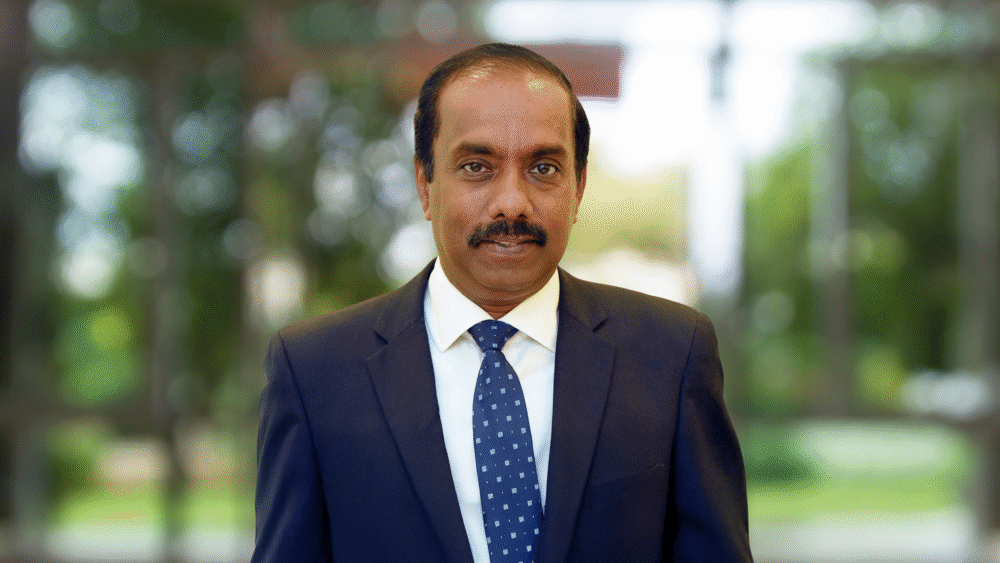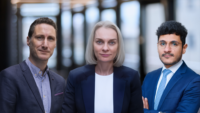As Manipal Academy of Higher Education (MAHE) Dubai marks 25 years in the UAE, Pro Vice Chancellor Dr. S. Sudhindra reflects on the institution’s journey, the evolving higher education landscape in the region and how it continues to adapt amid rapid technological changes
When MAHE Dubai opened its doors in 2000 with a small cohort of students, few could have predicted its transformation into a multidisciplinary campus that now attracts learners from across the GCC, Africa and Asia. Its journey mirrors Dubai’s own transformation into a global hub for knowledge, innovation and opportunity. At the helm of the institution is Dr. S. Sudhindra, Pro Vice Chancellor, who brings to the role a blend of academic depth, strategic vision and the discipline of a former army officer.
A PhD and MTech graduate from IIT Madras, Dr. Sudhindra served in the Indian Army’s Corps of Electronics and Mechanical Engineering before moving into academia. His leadership career has spanned institutions such as Christ University, Bengaluru, and the T. A. Pai Management Institute, where he served as Dean, prior to joining MAHE Dubai.
At MAHE Dubai, he leads a diverse team of faculty and academic staff responsible for designing and delivering programmes that are both globally relevant and industry-aligned. His focus on innovation and continuous improvement has shaped the institution’s emphasis on applied learning, research collaboration and the introduction of future-ready programmes such as BTech in Computer Science & Financial Technology and the BA (Hons) Liberal Arts.
In an exclusive interview with Education Middle East, Dr. Sudhindra reflects on MAHE Dubai’s 25-year journey in the UAE, the evolving higher education landscape in the region and how the university is responding to emerging technologies such as artificial intelligence.
He emphasises that success in higher education lies not just in infrastructure or rankings, but in the opportunities created for students and the values instilled in them along the way.
MAHE Dubai has been operating in the region for 25 years now. How would you describe the journey?
Our journey here in Dubai began back in 2000 with just a handful of students. Looking at where we are today (a multidisciplinary campus serving thousands from the GCC, Africa, Asia and beyond), it fills me with immense pride. I’ve seen us grow from modest beginnings into a purpose-built campus with advanced labs, studios and research spaces, very much in step with Dubai’s own rise as a global hub.
What makes this journey special for me is not just the growth in numbers or infrastructure, but the fact that we’ve stayed relevant. We carry a 25-year legacy in Dubai built on the foundation of 75 years of academic excellence in India, and our alumni, who now lead across industries worldwide, are the true testimony of that. For me, it has always been about evolving with the times while staying true to the mission of giving our students world-class, career-ready education.
You were among the first Indian higher education institutions to establish a presence in the UAE. Today, we are seeing many premier Indian universities entering the market. How has this evolving academic landscape influenced MAHE Dubai’s positioning in the region?
Being the first Indian higher education institution in Dubai gave us a pioneering advantage, but it also came with the responsibility to lead by example. Now, as more Indian universities are entering the region, the landscape has become more competitive, and I see that as a positive for students because it widens choice and raises overall standards. For me, our real strength lies in our legacy and agility.
Given our 75 years of higher education leadership in India and 25 years of experience in Dubai, we’ve built a curriculum that is always aligned with market trends. While new players are coming in, we have the benefit of deep roots, strong industry partnerships and a proven track record of setting benchmarks. What continues to set us apart is our ability to design globally relevant programmes that are directly applicable in the real world.
Applied learning has become increasingly important in bridging the gap between theory and real-world skills. How is this approach reflected in the academic experience at MAHE Dubai?
Applied learning has always been at the core of MAHE Dubai’s academic model. Every programme is built with experiential components, from internships, capstone projects and case-based assignments to live collaborations with industry partners. Specialised spaces such as our AR/VR lab, fintech studio and behaviour analysis lab immerse students in real-world environments. Beyond classrooms, students gain certifications, participate in hackathons and engage in field-based research. Our aim is to ensure that they don’t just acquire knowledge but develop the ability to apply it immediately in professional settings. This focus on hands-on experience is why our graduates are known for being job-ready from day one.
Can you give us an overview of your current student population? What proportion of students are from the UAE, India and other countries?
We host a student body representing more than 50 nationalities, creating a diverse and global learning environment. While a large proportion of our students still come from India and South Asia, we are seeing increasing enrollments from the UAE and countries in the GCC, Africa and Central Asia. This diversity is a strength in itself. It enriches classroom dialogue, encourages intercultural collaboration and prepares students for global workplaces. Our campus mirrors Dubai’s unique position as a crossroads of cultures and ideas, and it is this environment that sets our students apart.
With AI rapidly transforming education, how are you adapting to these changes in terms of both learning and teaching?
AI is transforming higher education, and we have embraced it proactively. We use AI in research, curriculum design and personalised learning, while students are introduced to AI tools for data analysis and creative projects. Platforms like Infylearn help our students with career readiness, interview preparation and resume building.
We also launched our Gen AI Task Force, which looks at integrating generative AI across teaching, research and administration. Importantly, we emphasise responsible use, ensuring that students graduate not just with fluency in AI but also an understanding of its ethical and societal implications.
What are the challenges posed by the changes in technology in higher education?
One challenge is the sheer pace of change – technology evolves faster than academic systems, requiring constant curriculum updates and faculty training. Another is inclusivity, since not all students or faculty adapt to digital tools at the same pace. The bigger challenge, however, is balance. Technology can enhance efficiency and personalisation, but it cannot replace mentorship, community and human connection that define higher education. At MAHE Dubai, we embrace innovation while safeguarding the essence of learning as a deeply human experience.
What are the top in-demand courses in the region? Have you introduced any new courses in the past two years?
Across the GCC, I continue to see strong demand in business, engineering, life sciences and creative fields such as design and architecture. Employers aren’t just looking for technical knowledge anymore; they want graduates who can pair that expertise with adaptability, creativity and problem-solving skills.
That’s exactly why we’ve introduced new programs such as BTech in Computer Science & Financial Technology and BA (Hons) Liberal Arts Programme. The BA (Hons) programme prioritizes flexibility; students can combine pathways and tailor their learning. This adaptability aligns with employers’ need for graduates with complementary, cross-disciplinary skills. For me, these reflect our commitment to anticipating future skills rather than reacting to them. I want our students to have pathways that are not only globally relevant but also aligned with the unique needs of this region.
What is it like working at MAHE Dubai? From a faculty perspective, could you share some insights into the academic culture and work environment?
The defining feature of MAHE Dubai is its culture of care. Our students repeatedly tell us that they feel supported, inspired and valued here, and I take great pride in that. It reflects not only our academic standards but also the atmosphere we have cultivated. Faculty come from across the world, bringing diverse perspectives and a strong spirit of collaboration. For me personally, this culture gives a sense of pride and belonging. It is more than a workplace; it is a community that fuels my love for what I do.
How do you see the higher education landscape evolving in the GCC?
I see the GCC rapidly positioning itself as a global hub for higher education, with national visions focused on knowledge economies and talent development. The UAE in particular has created an ecosystem that naturally attracts students from Asia, Africa and beyond, and it’s exciting to be part of that transformation.
You served in the Indian Army before taking up a career in academics. How has that experience shaped your approach to leadership and education?
Coming from an army background gave me a deep sense of ownership in everything I do. It shaped my discipline and resilience. As Pro-Vice Chancellor, my focus is preparing young people for a technology-driven future while grounding them in character and competence. This role carries real responsibility and pride; my priority is enabling the next generation to overcome challenges and succeed.
I measure success by the opportunities we create for students and the integrity with which we deliver them, with every decision anchored in student outcomes, faculty empowerment and the long-term good of the institution.








